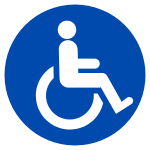Why Choose a Medicare Advantage Plan?
Explore the many potential benefits designed to support your health and budget, which may include prescription coverage, hearing care,dental care, vision care, and or more.
Call Now: 1-888-809-2440
Explore Potential Benefits
How John & Susan Chose the Right Medicare Advantage Plan
John and Susan always believed in making decisions together, but when it came to their health, they realized a “one-size-fits-all” approach wouldn’t work.
John, a retired teacher, required frequent visits to his cardiologist and access to a specific hospital network. Meanwhile, Susan, a gardening enthusiast, prioritized vision and dental to address her long-standing eye and dental care needs.
Why They Chose Different Plans:
John’s Choice
After researching plans, John found one that provided:
Extensive coverage for his cardiology visits.
A network that included his trusted specialists.
Prescription drug coverage tailored to his medication needs.
Susan’s Choice
Susan’s focus was on preventive and routine care, and she chose a plan that offered:
Comprehensive vision care and dental care.
Over-the-counter allowances for health essentials.
Wellness perks like gym memberships and transportation to appointments.
How It Worked for Them:
By enrolling in separate Medicare Advantage plans, John and Susan ensured they both received the specialized care they needed. They appreciated that these plans allowed them to stay within their budget while accessing services specific to their health priorities.
“Choosing different plans was the best decision we made,” Susan said. “It’s comforting to know we’re both covered exactly how we need to be.”
Your Health, Your Choice:
Like John and Susan, you don’t have to compromise when it comes to your healthcare. If you or your spouse have different health needs, a personalized approach may be the solution.
Contact us today to explore Medicare Advantage Plan options that fit your unique health and lifestyle needs.







Speak To A
Licensed Sales Agent
Connect with a Professional to Explore Your Medicare Advantage Options
New to Medicare, Relocating, or on Disability?
Speak To A
Licensed Sales Agent
Connect with a Professional to Explore Your Medicare Advantage Options

Why Linda Chose Medicare Advantage for Better Health
Linda had always managed her health and finances well, but rising medical costs began to overwhelm her. Diagnosed with diabetes, the expenses for regular check-ups and medications were adding up, leaving her worried about the future. A friend recommended a Medicare Advantage plan, and Linda was intrigued.
She discovered her plan covered:
Prescription drugs
Vision Care
Dental Care
Hearing Care
Healthy Groceries
-services she needed but weren’t included in her current coverage. Access to a network of top-rated doctors and specialists, along with preventive care, offered Linda peace of mind.
The integrated care management meant she no longer had to stress about coordinating her appointments and treatments.
Speak To A
Licensed Sales Agent
Connect with a Professional to Explore Your Medicare Advantage Options
See What Our Clients Are saying about Us!
At Seniors Healthcare Advisors, we’re dedicated to providing top-notch service for those seeking Medicare Advantage plans. Our clients’ reviews across multiple platforms showcase our unwavering commitment to helping you find a coverage for your needs.
Nikki was awesome! Thanks










